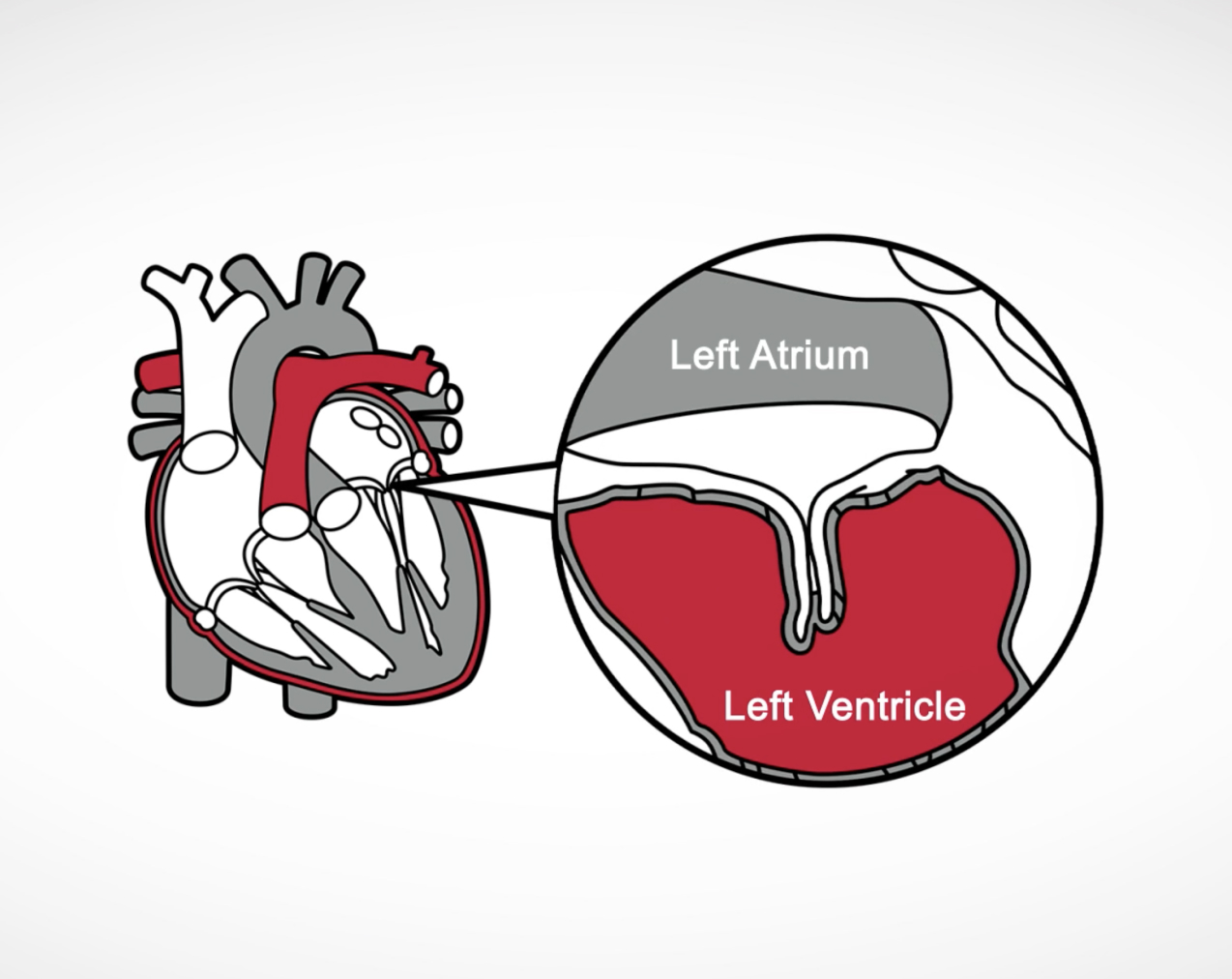
How is degenerative mitral regurgitation treated?
Get the details on how treatment can help lower your risk of heart failure and help you get back to everyday tasks.4
Mitral valve regurgitation is a serious heart problem that can affect your quality of life.


As your heart pumps blood throughout your body, four valves open and close to help blood flow in one direction. Blood flows from your body to the right side of your heart – through the top right chamber, tricuspid valve and bottom right chamber.
It passes through the lungs to receive oxygen before passing through the left side of the heart – through the top left chamber, mitral valve and bottom left chamber – and flowing out into the body.1

Degenerative mitral regurgitation is when the leaflets of the heart’s mitral valve do not close properly, causing some blood to leak backward. It may make you feel tired or out of breath, and it may cause an overall decrease in your quality of life.

Treating degenerative mitral regurgitation is key to keeping your heart healthy and could make a difference for your quality of life.
There are a few different ways to treat degenerative mitral regurgitation. Two common methods include treating with medical therapy or repairing the mitral valve to prevent backward leakage and help blood flow properly.
Repair can be achieved through open heart surgery or a less invasive method called transcatheter valve repair.
If you have mitral regurgitation and your doctor has determined that open heart surgery is too risky for you, transcatheter mitral valve repair may be an option. Only a specialized Heart Team can determine which treatment option is appropriate for you.

Edwards PASCAL Precision Transcatheter Valve Repair System
Who can be treated:
The PASCAL Precision transcatheter valve repair system (the PASCAL Precision system) is approved for treating patients with abnormality of the mitral valve leaflets and/or its structure, which may be referred to as Degenerative Mitral Regurgitation or Primary Mitral Regurgitation. Patients should work with their doctor and a specialized Heart Team, which should include a cardiac surgeon experienced in mitral valve surgery and a cardiologist experienced in mitral valve disease, to confirm their surgical risk. The specialized Heart Team will determine if the patient is a suitable candidate for the PASCAL procedure.
Who should not use:
The PASCAL Precision system should not be used in patients who:
Warnings:
Precautions:
Precautions Prior to Use
Precautions After Use
Potential Risks
The most serious risks associated with the procedure are:
Additional potential risks include:
CAUTION: Federal (United States) law restricts these devices to sale by or on the order of a physician.
Edwards, Edwards Lifesciences, the stylized E logo, Edwards PASCAL, Edwards PASCAL Ace, PASCAL, PASCAL Ace, PASCAL Precision, are trademarks or service marks of Edwards Lifesciences Corporation or its affiliates.
© 2023 Edwards Lifesciences Corporation. All rights reserved. PP--US-7940 v2.0